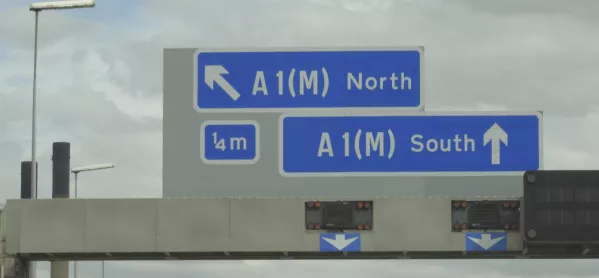Sir Michael Wilshaw may well have been right to have warned in his speech last week that George Osborne’s Northern Powerhouse will splutter and die if youngsters lack the skills to sustain it. But that doesn’t mean “looking South” is the only option, especially when a number of schools, multi-academy trusts and wider institutions in the North already hold the keys to rapid school improvement and positive reform.
As a proud Northerner, I recognise that the government’s proposals for the “Northern Powerhouse” come from a good place - boosting economic growth, rebalancing the economy and unleashing the power of core northern cities and their wider regions. Key phrases from the chancellor have been around unifying approaches, devolving powers and giving away a level of tax-raising powers to local government. Local Enterprise Partnerships (LEPs) have become more powerful and are framing action and funding on local skills priorities. Yet, if the Northern Powerhouse is to be achieved it will only be by engaging and empowering educators and within these partnerships - with purpose - we can find the keys to future success.
New legislation contained in the Education and Adoption Bill and proposals for more effective system leadership - or system leader trusts - outlined by Sir David Carter, the new national schools commissioner, will bring further change to the education landscape.
The Education Foundation’s recent Education Reform Summit North showed that schools, colleges, employers and higher education institutions have an appetite for change and are already reshaping their organisations. Our new “Future Doncaster” report, commissioned by Doncaster Council last year to bring fresh ideas to the local authority, also highlights a need for a new and vibrant approach to mobilising for school improvement across the North.
Isolation of schools is a real enemy, as it was in London’s schools. We underline in the report the need for mutual respect, real partnership working with employers and other key stakeholders and a clear focus on “place leadership” where local solutions are found to granular issues. There also needs to be clear national recognition by Ofsted and government that we need to mobilise all of our resources and local assets to rise to the school improvement challenge - a view taken on by Doncaster in creating a new education commission led by Ann Limb and Sir Tim Brighouse as a result of our findings.
‘One-nation challenge’
But we need to be ever more ambitious for young people in the North and across England. Ofsted’s most recent annual report talked of a “nation divided” with an achievement gap across the North in key areas. The Social Mobility and Child Poverty Commission, in its annual state of the nation report, talked of our “one-nation challenge”. In January, the prime minister spoke too of how education reform would be central to the government’s forthcoming Life Chances strategy. And so it should be.
Aware too, of the irony of making a speech about the North in London, Sir Michael said this: “I appreciate that it isn’t easy and I accept that improvement can’t happen overnight. I understand that it’s a lot easier to teach children who don’t come to school hungry, who live in homes filled with books, who have parents who are employed, let alone university-educated.”
We believe that it’s also about the importance of imaginative and engaging political leadership. Sir Michael expresses this view in typically frank fashion: “I am calling on local politicians, be they mayors, council leaders or cabinet members, to stand up and be counted, to shoulder responsibility for their local schools, to challenge and support them regardless of whether they are academies or not. I’m calling on them to be visible, high-profile figures that people can recognise as education champions. I am calling on them to make education in general - and their underperforming secondary schools in particular - a central target of their strategy for growth.”
Good policy is not “done” to educators but with. There’s also often a media narrative that seems to only berate our educators, when frankly there is also much to celebrate. Celebrating success is not weakness. It is often a motivator for change.
No one celebrates excuses but we really need to celebrate good people and great practice.
So, let us welcome the challenge of Sir Michael, but let’s not always look South - there is excellence and areas of real promise right across the North.
Ty Goddard is co-founder of the Education Foundation. He tweets as @ty_goddard
Want to keep up with the latest education news and opinion? Follow TES on Twitter and like TES on Facebook




